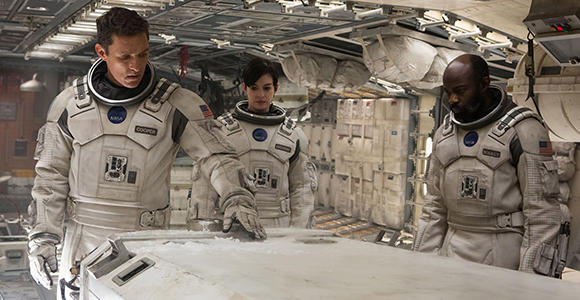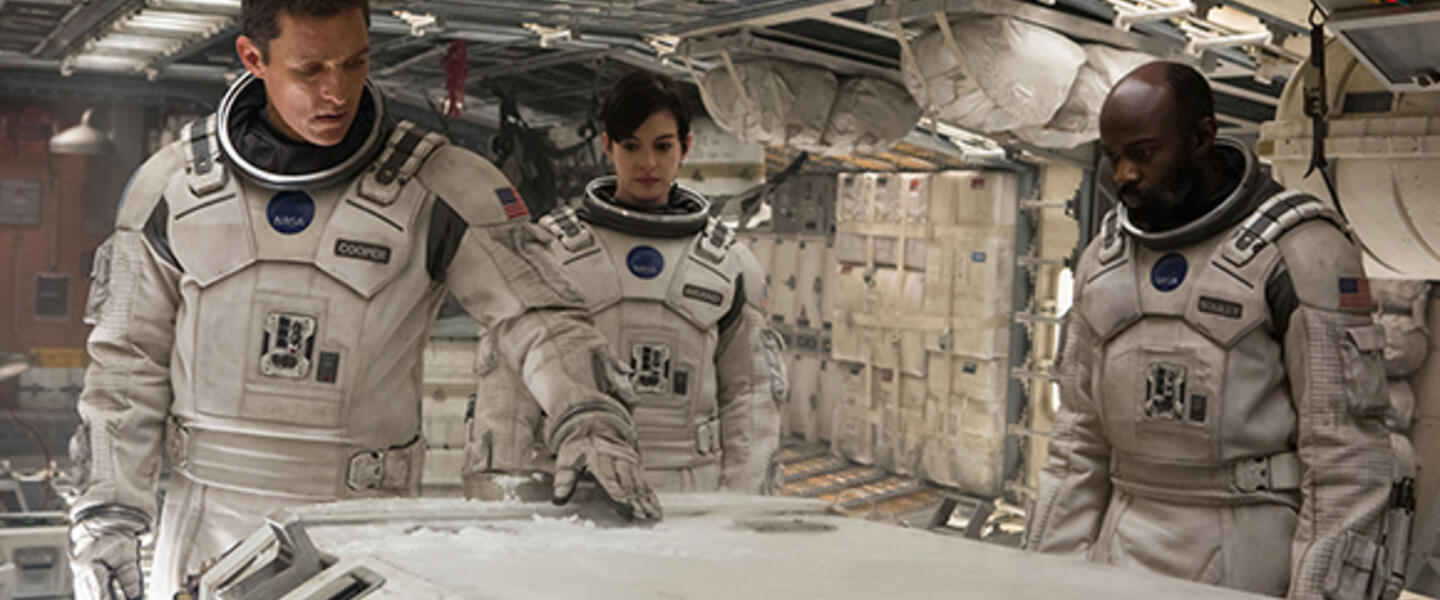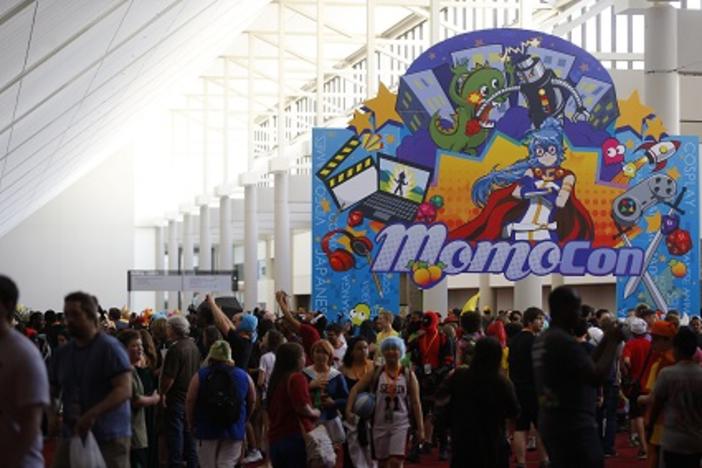
Section Branding
Header Content
"Interstellar" Touches "2001"-Style Greatness, Then Flames Out
Primary Content

Even after 46 years, Stanley Kubrick's "2001: A Space Odyssey" remains the gold standard for sci-fi cinema. The then-groundbreaking special effects may have been eclipsed by Lucasfilm's digital miracles, but it still has the ability to dazzle and puzzle. So if you've seen the film, it should come as no surprise that it's the first comparison you'll make when you strap yourself in for Christopher Nolan's "Interstellar."
That's not just because the director of "The Dark Knight" trilogy honors Kubrick's masterpiece with certain images, and features urbane-sounding, artificially intelligent robots that sound like they rolled off the same assembly line as "2001's" Hal. It's also due to a smart, demanding script that requires viewer attention and faith, especially in a third act that is just as mind-bending as "2001's" finale.
Unfortunately, that's also the weakest part of "Interstellar." A storyline tied to the intricacies of astrophysics, anchored by some of the best acting you'll see in a sci-fi blockbuster, is finally undone by its own ambition.
Until that point, Nolan gives us two hours of speculative goodness that approaches the genius in "Dark Knight" and "Inception."
Cooper (Matthew McConaughey), a former jet pilot, is a widower raising two kids and fields full of dust-covered corn on a planet ravaged by climate change. A chance encounter with a wandering drone leftover from the good ole' tech-centric USA leads to a showdown with an underground group of NASA scientists and engineers led by Dr. Brand (Michael Caine) and his daughter (Anne Hathaway). The group has been receiving signals from an alien intelligence that has opened up a rift in space/time near Saturn and has built a vehicle designed to investigate the possibility of a new planetary home for what's left of mankind on the edge of extinction.
Of course, Cooper gets the chance to lead the astronauts on the mission to save Earth, but may never see his son and daughter again.
Granted, even in a movie called "Interstellar," that's a lot to swallow. But Nolan, his co-scenarist/brother Jonathan and his actors make it work with a scary, sad portrait of a second, more widespread Dust Bowl that's suffocated more than just crops like wheat and okra. It's also killed all reason and trust in technology; Cooper's children are taught in school that the Apollo moon landings were faked for Cold War purposes and students are pushed to become farmers. Daily dust storms bring an early end to high school baseball games and have become all too commonplace. It's a compelling depiction of nature gone wild.
Nolan's ingenuity doesn't let up once the action moves to the stars. The film's special effects wizards, led by Paul Franklin and his team at Double Negative, provide jaw-dropping illustrations of space travel, wormholes, black holes, alien planets and their landscapes. One set piece involves a race against a massive tsunami. Another is the Tesseract, clearly NOT the Cube of Infinite Power in "The Avengers" but rather an extremely creative way to illustrate objects and movements in five dimensions. The script and the special effects show the influence of popular physicist Kip Thorne, the film's advisor and an executive producer.
Throughout all this is Cooper's desire to save his family, especially his daughter Murph, played as a child by an awfully good Mackenzie Foy and in adulthood by Jessica Chastain. The fact that two actresses are required for the part highlights key plot points for "Interstellar;" tactical decisions made by the flight crew in real time could result in decades passing back on Earth. If you can't wrap your head around the physics, you can appreciate the emotions on display from Oscar winners McConaughey and Hathaway when confronted with the impact of those decisions.
Considering the strength of those father-daughter relationships, it's a shame that "Interstellar" doesn't pack the punch it should when the end credits roll. If string theory is one possible way for physics to explain the universe, then the movie ultimately pulls one thread too many and starts to unravel when it should soar. But for most of its running time, "Interstellar" is worth the trip.






